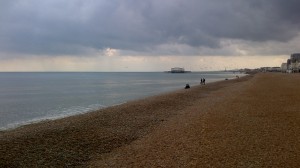This term I’ve taught a new study skills workshop at SOAS on planning and managing workloads at Masters’ level. It’s not a traditional time management workshop – those are taught by one of my Learning and Teaching Team colleagues. However, when talking to postgraduates about managing workloads, issues of managing time inevitably arise, especially for part-time students who may be juggling a wide range of different responsibilities and demands. And it’s a topic where it is particularly useful to get students doing practical exercises which focus on their own planning and use of time.
Fortunately, there are lots of open resources available for use with students (undergraduate and postgraduate). What follows are a few examples of what I’ve come across. Encouraging students to consider their time use seems like an important first step so keeping a time log often seems to be recommended as a way of encouraging students to examine in detail how they actually spend their time over the course of a week. They can do this quite simply in a note book, of course but there are a range of templates available too. An example time log is one of a number of OERs developed on time management by Rimmer and Corfield and downloadable from Jorum. These authors have also created scenarios for students to work through so that they can generate their own tips and ideas on monitoring use of time and planning. A resource which the SOAS students seemed to find particularly helpful was one developed on self-management by Quince and Carl and available on Humbox. This is specifically for postgraduate research students (and so I adapted it for Masters) and it focuses on where our time goes. Students used the template to count up the number of hours they spend on all their different activities and commitments during the week and then to see how many hours are left for study after eating, sleeping, catching the tube, being distracted by technology etc. They seemed to find this a genuinely interesting exercise.
There are also some useful open resources from Learn Higher, which include dealing with distractions (with tips from students), getting organised, planning schedules and lots more.
All this has encouraged me to reflect on my own planning and time management skills as I often find that managing two places of work brings its own challenges. So I’ve been following up with some more in-depth reading of my own. I am not particularly interested in advice which would result in a rigidly organised style of working – that wouldn’t suit me – but I have been dipping in and out of a few books which have included some helpful suggestions. In What the most successful people do before breakfast, Vanderkam focuses on the importance of mornings and so I have been trying to shift an hour of my working day from afternoon to morning – so far so good – there is no doubt that for me, mornings are more conducive to getting stuff done than afternoons! Also, some of the very practical suggestions of Ian Cooper in How to be a time master look useful so I’ll see how I get on and whether I can generate some new activities for my next student workshop.


